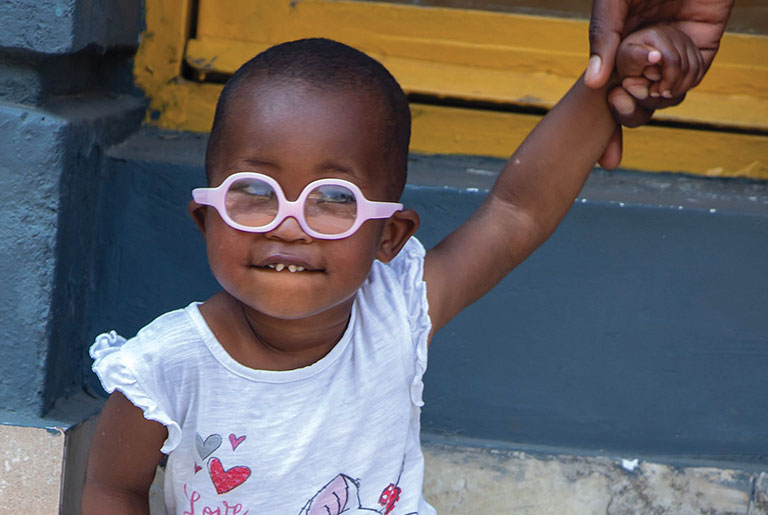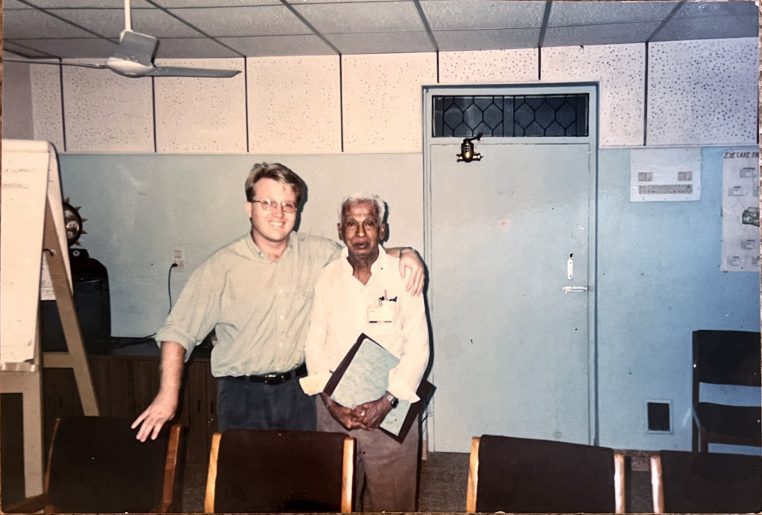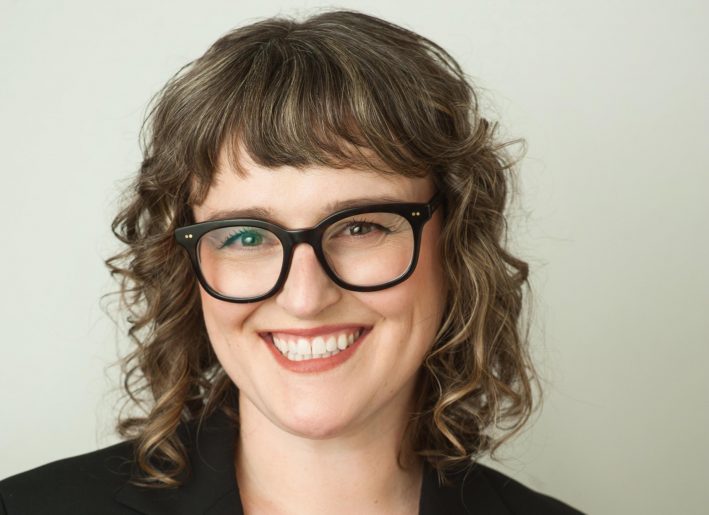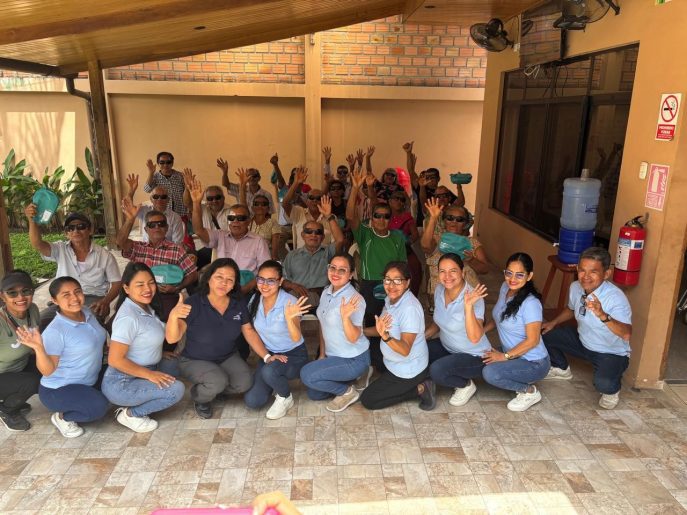“Now she plays with other children and can walk by herself!” said Lilia’s father.
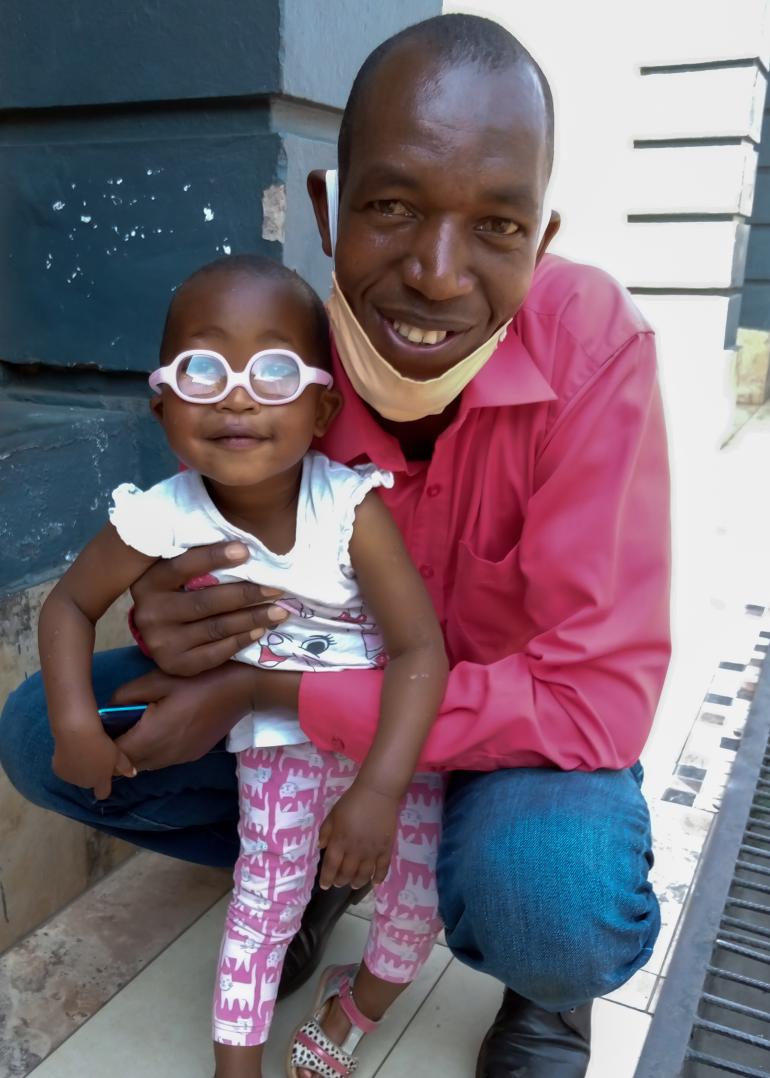 Lilia and her father
Lilia and her father
When Lilia was 6 months old, her parents knew something was very wrong with her vision. She couldn’t follow her parents’ movements with her eyes, cried constantly and didn’t want to eat. Lilia’s parents were devastated. Living in a poor, rural area of Mwaro Province in central Burundi, they couldn’t afford to travel to Bujumbura, the capital, for treatment nor could they afford the cost of Lilia’s eye care.
The family was relieved to learn about a nearby Community Eye Centre (CEC) that could treat Lilia for free and provide transportation to and from their home. At the CEC, Lilia was diagnosed with a congenital cataract in both eyes. At just 8 months old, Lilia underwent sight-restoring surgery and was given a pair of glasses.
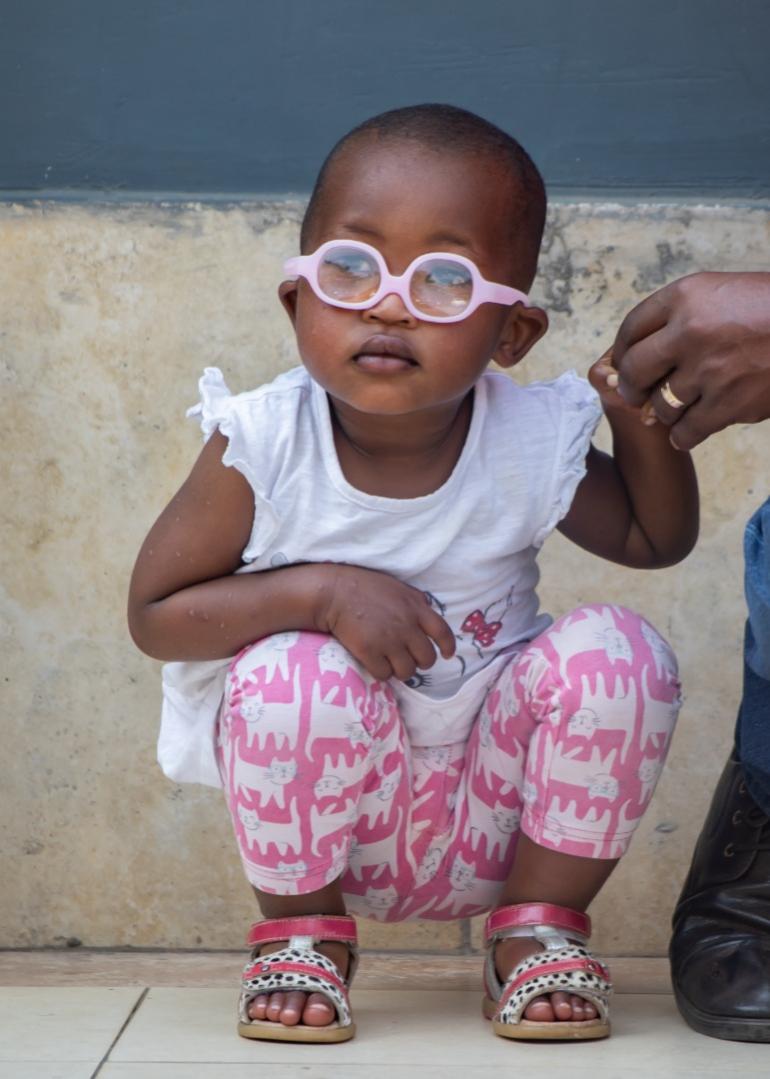
Lilia’s parents were concerned that their baby wouldn’t be able to wear the glasses because she was so young. The ophthalmologist explained that in order for Lilia’s vision to develop properly, she had to wear the glasses but that they were specially made for babies and young children. The glasses are flexible, bendable and virtually indestructible and come with a head strap to keep them in place. The doctor also advised the family that Lilia would need to come back for regular follow-up visits and new glasses as she continues to grow.
Today, Lilia is a happy 18-month-old toddler who keeps her parents busy chasing her around as she explores her surroundings. “She has gained weight and no longer cries like she used to. I hope she will be able to go to school like other children!” said her mother with a beaming, hopeful smile.
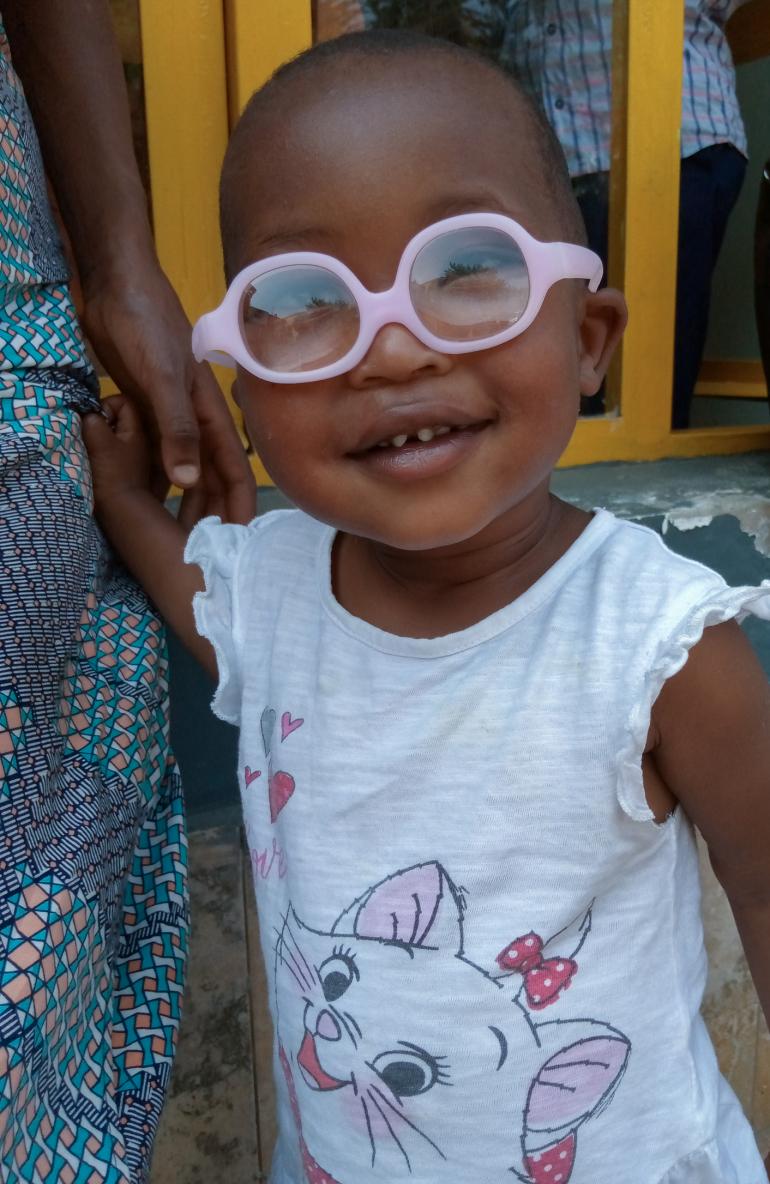 Lilia holding her mother’s hand
Lilia holding her mother’s hand
